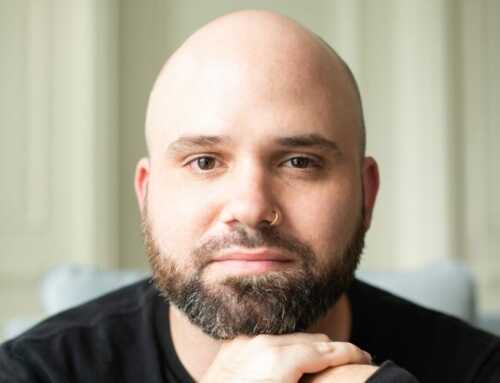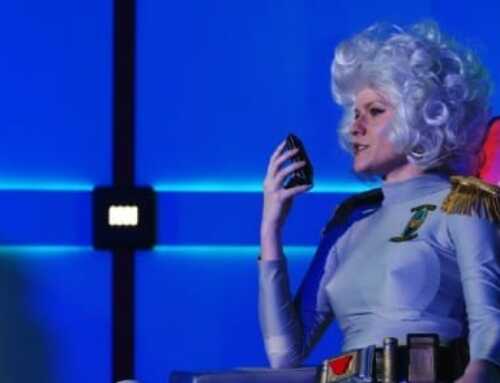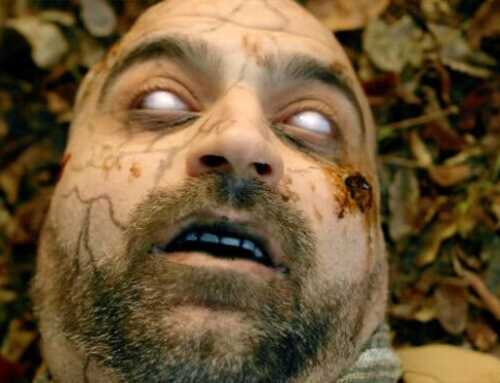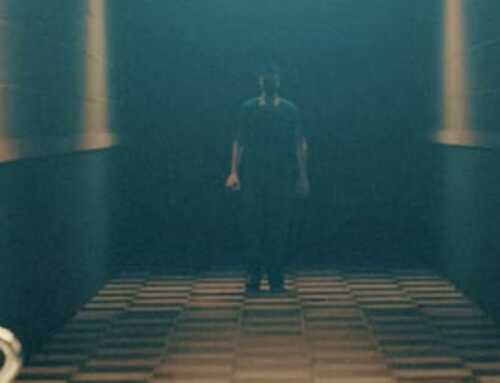What would you do if your child was missing? What if the police didn’t seem to care and time itself seemed like it was falling apart around you? Could you ever bring yourself to return to normal? Or would you never stop searching, certain that there’s something you haven’t tried yet that will lead you to the answer? These are the questions Charlie (Robyn Lively) struggles with in Through the Glass Darkly, originally titled Disappearance At Lake Elrod, the debut film of director Lauren Fash.
“For now we see through a glass, darkly; but then face to face: now I know in part; but then shall I know even as also I am known.” – 1 Corinthians 13:12, King James Version
It’s 1997, and Charlie’s daughter, Lily (Kinsey Isla Dillon), has disappeared after a day at Lake Elrod beach. Charlie has been tirelessly searching for her for over a year, hanging flyers and dreaming of running through the forest around the lake, calling for Lily to come home. But, except for bartender Cricket (Kerry Cahill), Charlie and the rest of the town mostly avoid each other. It’s 1997 in Georgia. If anyone knew Charlie went home to another woman at night, she’d have bigger problems than a missing daughter.
In a flashback, Charlie has dinner with Lily and her partner, Angela (Bethany Anne Lind). Charlie explains to Lily that they can only be a family at home, because if other people knew, it would make them mad. It’s a bittersweet scene that I understood all too well, and it’s acted to perfection by everyone involved.
Back in the “present,” another girl, the daughter of the affluent Carmichael family, goes missing. Angie starts pulling away. Furious, Charlie confronts the local police about their willingness to help the Carmichaels while apparently having entirely given up on Lily, and meets Amy (Shanola Hampton), a journalist pursuing the disappearance of Elodie Carmichael. Together, the two take on the case, noticing connections between the disappearances. But what they find, neither could have expected.
Disappearance at Lake Elrod uses the unique experiences of queer people in the South to craft a mystery movie that actually feels unique. Charlie’s reticence toward other people, and the dismissive attitude of the police toward her, is understandable since she’s a closeted lesbian in an area where it’s dangerous to even seem like you support the LGBT+ community, much less be part of it yourself. It can be tropey at times, but the application of those tropes is far from stale, and the movie is well-acted and well-directed. Had I not looked it up, I wouldn’t have guessed that this was Lauren Fash’s directorial debut, and I think she’s someone to watch moving forward. Her command of plot and pacing is better than that of some people who have been making thrillers for years, and the way she sets up the dominoes of her plot is also quite gripping to watch.
Disappearance at Lake Elrod is now available to watch as Through the Glass Darkly.
9 out of 10
| Disappearance at Lake Elrod | ||
| RATING: | NR |
DISAPPEARANCE AT LAKE ELROD - Trailer |
| Runtime: | 1 Hr. 43 Mins. | |
| Directed By: | ||
| Written By: | ||







